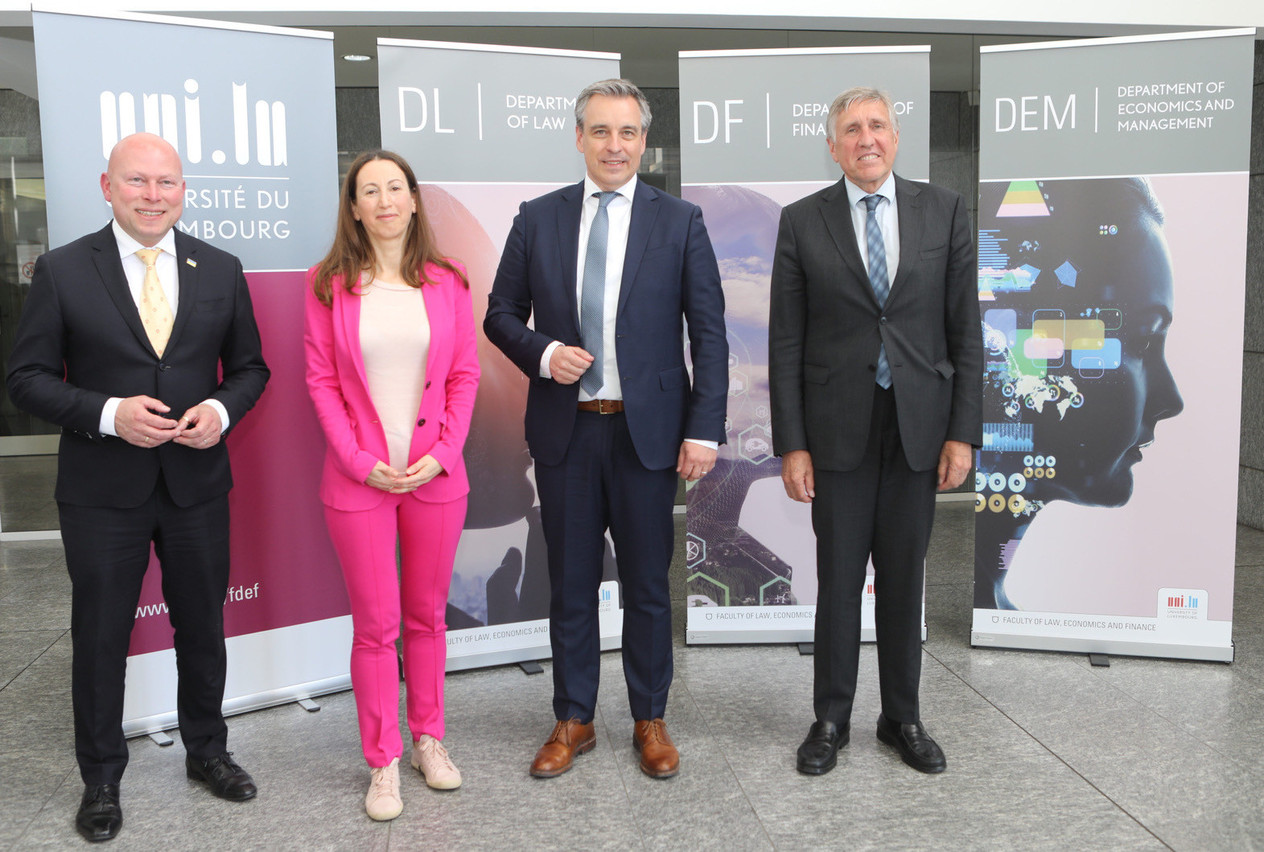On 20 April deputy prime minister François Bausch (déi Gréng), education minister Claude Meisch (DP) and University of Luxembourg’s rector Stéphane Pallage announced the collaborative project. The chair will be hosted within the university’s law department and will carry out research, teaching, and outreach activities. Its work on cyber policy will cover data protection, cybercrime, cyber defence, contract law, intellectual property and human rights.
The chair has been established for an initial period of five years starting from September 2022. It will aim to develop policy and industry-relevant research on the social science aspects of digital and network technologies, conducting outreach activities to help raise awareness of cyber policy issues and expanding teaching in the field.
In a first step, cyber policy will be included as a module in the Master in Space, Communication and Media Law. This will then be expanded to a specialised track within the programme.
“A good and efficient governance in cyberspace is of key importance for the protection of democracy worldwide. This chair’s ambition is to help optimise the cyberspace rules. It illustrates the University’s strategy to help address key challenges of our time while being of service to society,” said Pallage in a press release.
Like other chairs within the university, the cyber police one will look to bring the public and private sector closer and foster collaboration and exchange of ideas, best practices and information.
On 4 April Luxembourg-based company appointed Bradley Ladewig as holder of the Paul Wurth chair in energy process engineering. This chair will set up a new research laboratory focusing on hydrogen-related materials and technologies that address critical gaps in in the European market.
Updated on 21 April at 5.30pm to clarify that cyber policy will be included as a module and then track in an existing Master’s programme.
